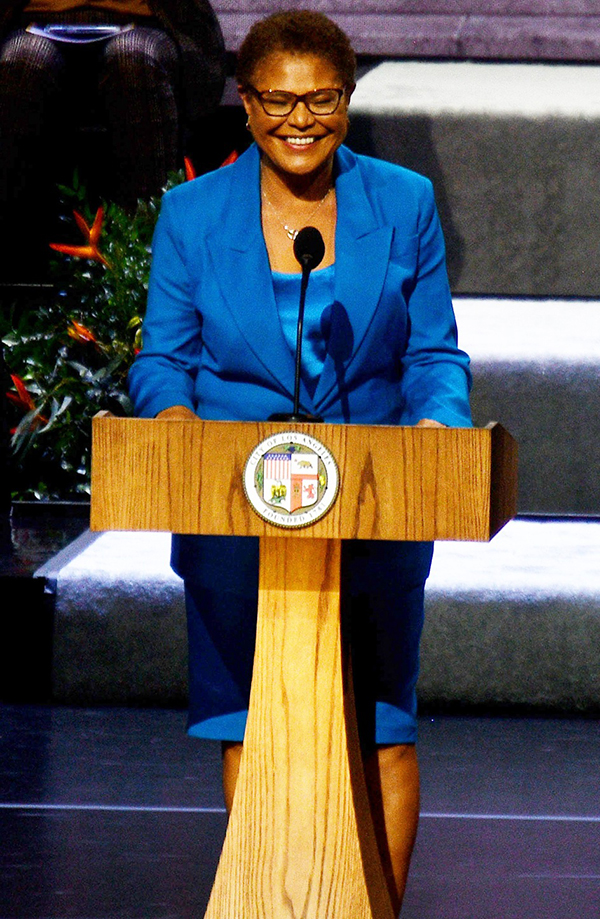By Earl Ofari Hutchinson
Contributing Columnist
In early November, the Canadian government issued a sobering report that should have raised lots of eyebrows among those desperately searching for solutions to the homeless pandemic, especially here in Los Angeles.
Canadian officials announced that after spending billions in public money to wipe out homelessness in the country, they don’t know if the money made any dent in the problem. The government spending aimed to cut chronic homelessness in Canada in half by 2028.
Not only did the government fail to get any hard data to determine if the money spent made any impact on homelessness but worse it didn’t know whether there was any realistic hope of coming anywhere close to its target of reducing homelessness by 2028.
The centerpiece of Canada’s plan was what it dubbed the “reaching home” program. The idea was to move lots of people camped on the streets into some type of housing. It spent nearly a billion and a half dollars on the program in 2019 and 2020.
Yet, government officials admitted they were clueless whether there were any fewer people on or off the streets by 2021. That was yet another huge cautionary note that simply tossing money at the problem of homelessness, no matter how much and how well-intentioned, is not in and of itself the answer.
Exasperated officials finally threw up their hands and pledged to double down on efforts to better numbers to determine if the money spent had any real effect on cutting homelessness. Meanwhile, they admitted the homeless problem remains a crisis in Canada.
The glaring fuzziness about whether tossing money at the problem does much sparked much finger pointing among Canadian politicians. Some accused the government of doing nothing to rein in the massive construction of high-ended luxury and upper middle class housing development projects that have dumped thousands of persons on Canada’s streets.
The failure to put any appreciable checks on housing development that prices all but the wealthy and well-to-do out of the housing market guarantees that the problem of homelessness will only get worse, no matter how much public money the government spends to try to get a handle on the problem.
The Canadian dilemma again is no different than what the federal government and cities throughout this country face when it comes to getting a handle on homelessness. The city that tops them all in confronting the problem is, of course, Los Angeles.
Homelessness has been the runaway number one public policy worry of local officials for almost two decades. Every mayor and every city official has made promises and projected solutions to get rid of the tent encampments that are tantamount to a city of the dispossessed within the city.
Now the task to dent the problem falls on the shoulders of Los Angeles’ new Mayor Karen Bass. Before officially taking office, she announced that she had a 100-day plan for tackling some of the gaping problems facing the city, the runaway number one of which is the homelessness debacle.
A big part of Bass’s 100-day plan centers on that. She did not offer any pie-in-the-sky promises that politicians like to make such as “I’ll end homelessness. I’ll eradicate homelessness. I’ll make homelessness disappear.”
Those are the kind of empty promises that we’ve heard from far too many politicians. As in Canada, they too have spent millions of taxpayer dollars, tossed up a few encampments and makeshift housing here and there, and repeatedly demanded taxpayers cough up millions on the pledge that their dollars will be used to end homelessness.
All the while, many L.A. streets, parks, freeway sidings and underpasses look like Kolkata, India.
Bass’ public pledge to tackle the crisis problem have taken a realistic and comprehensive approach to the problem. It is not a matter of simply putting a roof over the heads of thousands of persons on L.A.’s streets.
It requires an equal investment in drug and alcohol counseling, job placement, skills training and retraining, child care, nutrition and the ongoing monitoring of service programs to ensure effectiveness.
That makes for a long, hard, uphill process. There are no quick fixes. Bass understands that.
It will take a mix of ramped-up approaches — strategic spending, land-use changes, housing subsidies and the expansion of support services — to dent the problem.
The homeless crisis does not exist in a vacuum. It has a nefarious twin. High rents make housing and apartment affordability in L.A. a bad joke and swells the homeless numbers.
A challenge for Bass is to craft and push the City Council to enact a solid land-use plan to rein in upscale development. That means taking checkbook politics out of the development process while ensuring the building and subsidizing of more affordable housing.
It’s a daunting task given the outsized power of corporate developers to get just about anything they want from the L.A. City Council with minimal checks and controls.
Nevertheless, as Canada sadly showed, tossing dollars at the problem without a comprehensive, enforced plan to make affordability in housing and massive services to deal with the roots of homelessness, is yet another prescription for failure.
Earl Ofari Hutchinson is an author and political analyst. His latest book is “West, Irving and the Never-Ending Debate Over Black Antisemitism” (Middle Passage Press). He also is the host of the weekly Earl Ofari Hutchinson Show from 9 to 10 a.m. Saturday on KPFK 90.7 FM Los Angeles and the Pacifica Network.












